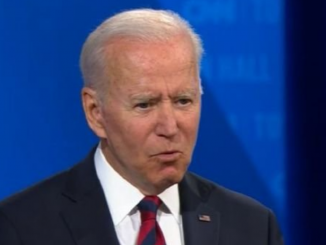
Pennsylvania State University will no longer use labels like “freshman,” “junior,” or “senior,” because such terms are not inclusive enough and perpetuate a Western male-dominated viewpoint.
What are the details?
On April 27, Penn State’s faculty senate announced the passage of an “inclusive language” resolution that has effectively banned the use of “paternalistic” terms such as “freshmen,” “junior,” “senior,” “upperclassmen,” “underclassmen,” and more, according to Penn State News.
The Senate Committee on Curricular Affairs passed the resolution — titled “Removal of Gendered & Binary Terms from Course and Program Descriptions” — with a majority vote.
A portion of the resolution reads, “The University, as with most all academic institutions world-wide, has grown out of a typically male-centered world. As such, many terms in our lexicon carry a strong, male-centric, binary character to them. Terms such as ‘freshmen’ are decidedly male-specific, while terms such as ‘upperclassmen’ can be interpreted as both sexist and classist.”
Not even “junior” and “senior” are exempt from the senate’s inclusive microscope, as such terms are “parallel to western male father-son naming conventions, and much of our written documentation uses he/she pronouns.”
Terms like freshman, sophomore, junior, and senior will now be replaced with labels “first-year,” “second-year,” “third-year,” and “fourth-year,” and upperclassmen and lowerclassmen will now be referred to as “upper division” students and “lower division” students.
The resolution recommends that the university make “editorial updates to our course and program descriptions” to reflect the changes, in order to “remove gendered terms” and avoid any alienation of faculty, students, and staff.
“We suggest that the University consider changes to all written materials, including recruiting materials, admissions materials, scholarship information, housing materials, other outward-facing documents, internal documents, and websites,” the resolution adds.
The resolution, however, admits that certain instances will exist in which gendered terms “may need to remain intact” — specifically gender studies courses and other courses that may pertain to feminism and the like.
“The committee recognizes that there may be places where these terms, especially gender terms, may need to remain intact, for example in the case of courses or degrees that delve into gender studies,” the resolution points out. “In such cases, efforts shall be made to clearly delineate between the ‘academic’ study of these gendered terms, and the newly established nomenclature as it would apply to faculty, staff, students, and guests.”
According to Campus Reform, more than 88 percent of university students approved the change.
*story by The Blaze


